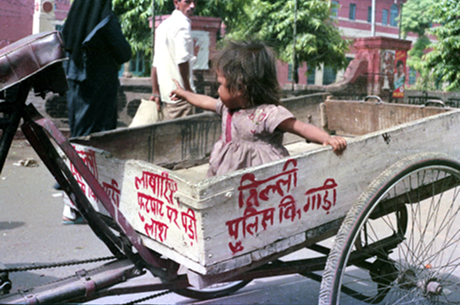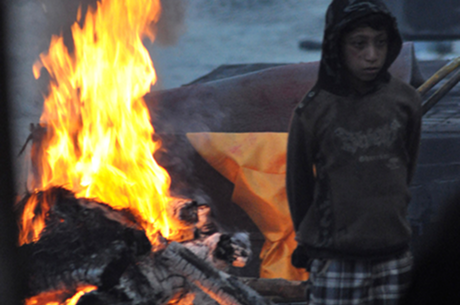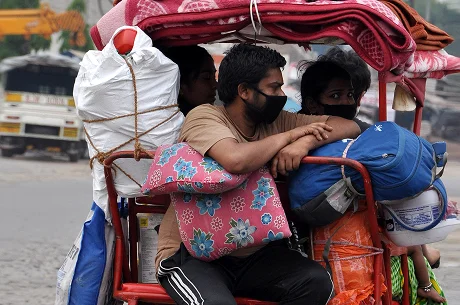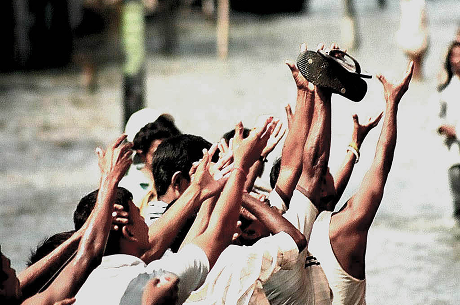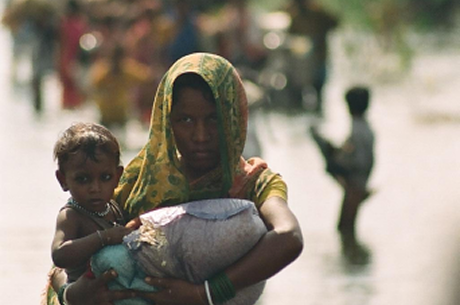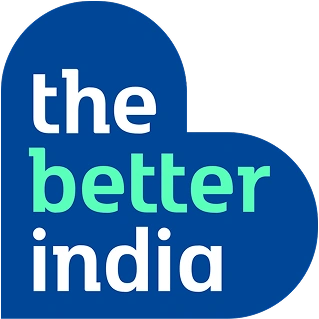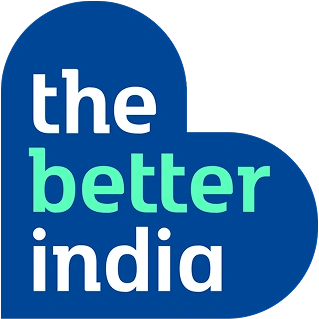Doing good is a collective responsibility
Founder Director Goonj & Gram Swabhimaan
About Anshu Gupta
Anshu Gupta is a systems thinker and a Social Architect who has spent over two decades reimagining the frameworks of development, dignity, and disaster response. As the founder of Goonj and Gram Swabhimaan, he channels urban surplus into powerful tools for rural resilience, amplifying the wisdom and leadership of marginalized communities. The objective through Gram Swabhimaan is to awaken rural communities to their own worth, wisdom, and cultural richness, by walking alongside them as enablers through deep listening and sustained dialogue. His approach reframes “material poverty” not as a deficiency, but as a solvable disconnect bridged through dignity, participation, and people-led change.
From menstrual dignity to climate response, from disaster zones to village commons, Anshu’s journey is about listening deeply and trusting communities to lead. A Ramon Magsaysay Awardee, Ashoka and Schwab Fellow, he has shared this vision at TED, WEF (World Economic Forum) , and beyond. His most recent initiative, SARRD (Societal Alliance for Resilience and Response to Disasters) , furthers this ethos, making resilience a shared, everyday responsibility.
The Journey of One: From Inner Grit to Collective Change
“Dignity is not charity. It’s a starting point.”
– Anshu Gupta
“Dignity is not charity. It’s a starting point.” – Anshu Gupta
“An initiative begins alone, but grows when others
walk with it.”
From Disaster to Dignity
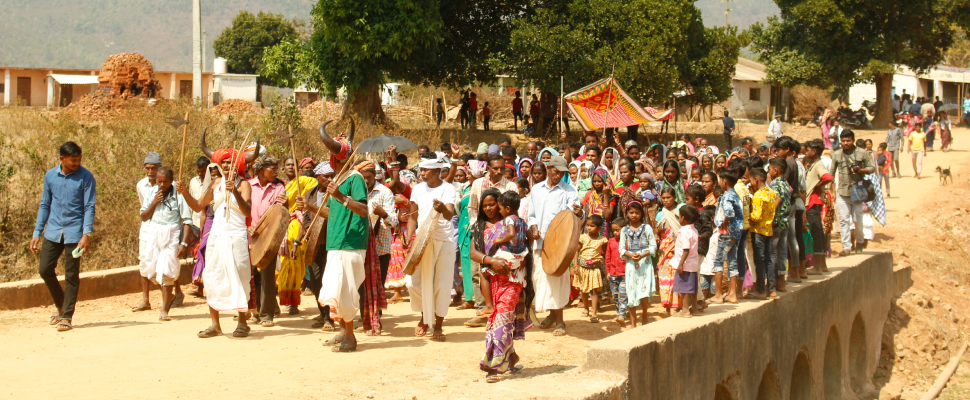
Gram Swabhimaan Begins
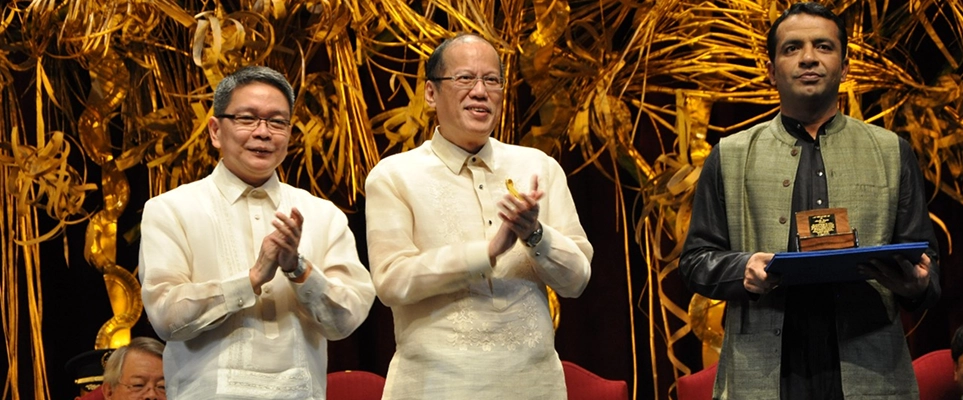
Ramon Magsaysay Award
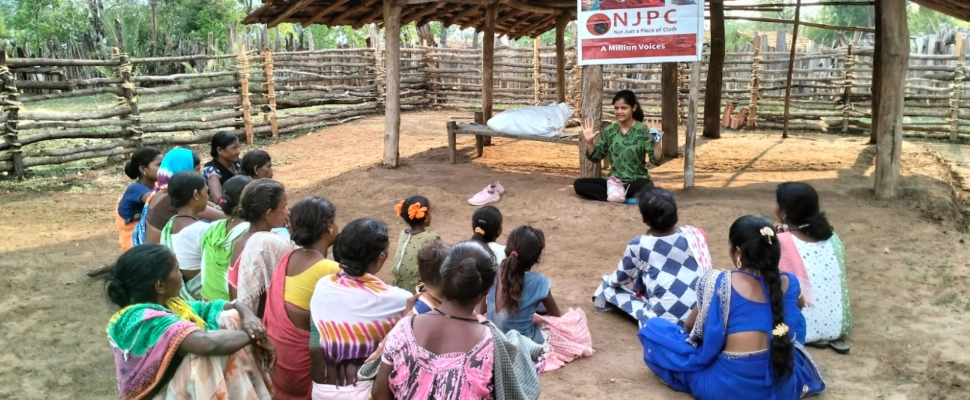
Challenging Taboos with Cloth
Leaving Corporate to Start Goonj
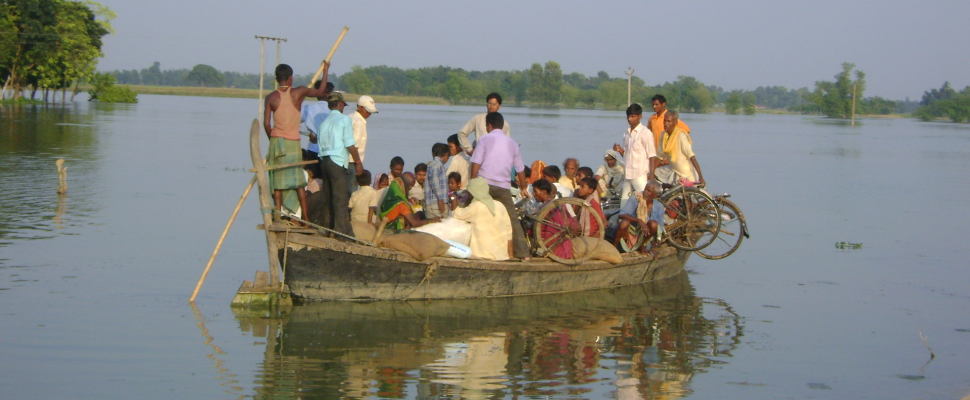
Early Encounters With Dignity & Scarcity
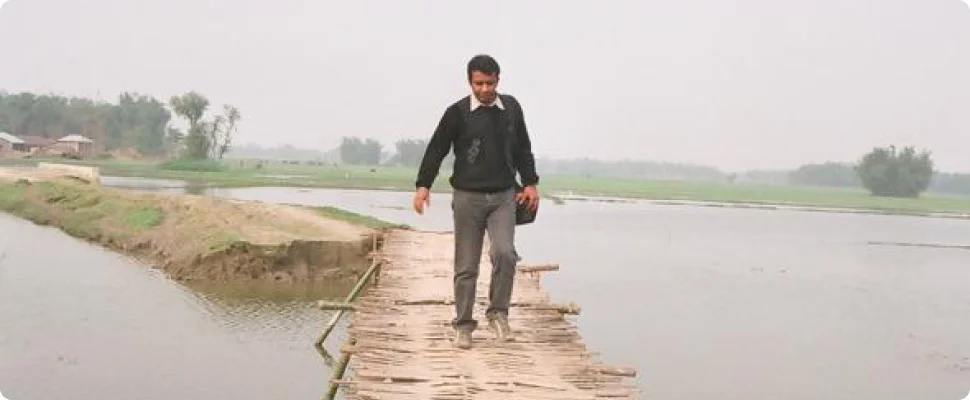
The First Initiative: Walking Against the Odds
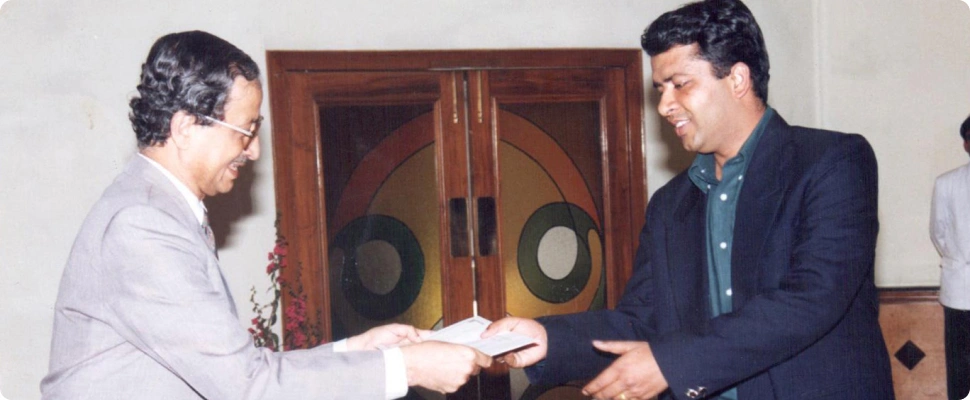
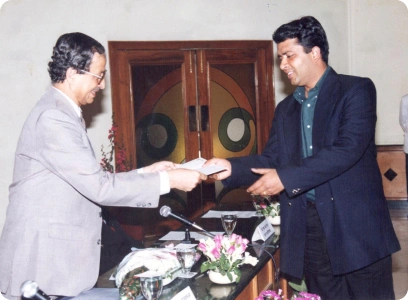
The First Initiative: Walking Against the Odds
“That day I learned: what begins with belief becomes movement.”
1988
A life-threatening accident in his teenage years left Anshu unable to walk. Refusing crutches, he taught himself to walk again—using cotton-stuffed socks, a hockey stick, and sheer grit.
Early Encounters With Dignity & Scarcity
“Each individual is born with dignity, nobody can give or take it away; Irrespective of their identity, all have dignity”
1990s
Growing up in a value-driven, financially strained household, Anshu saw dignity not as comfort, but as a quiet resistance. This shaped his lifelong lens of seeing dignity in struggle, and self-worth in the smallest acts of survival.
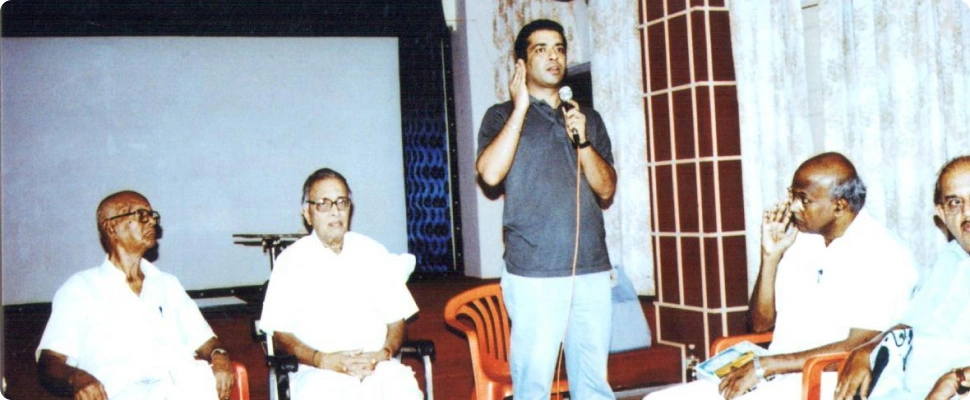
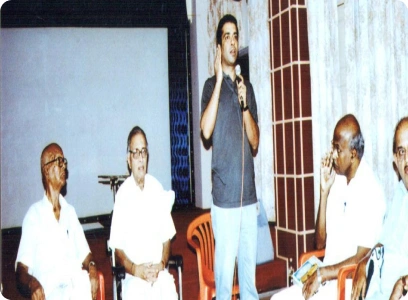
Leaving Corporate to Start Goonj
“Clothing isn’t charity—it’s a question of dignity.”
1999
Leaving a corporate role in Escorts, he launched Goonj with 67 clothes and no institutional funding. The trigger? A conversation with Habib Bhai, a man who collected unclaimed dead bodies in exchange for cloth.
Challenging Taboos with Cloth
“Menstruation is not just a women’s issue, it is a human issue”
2004 – 2006
After the tsunami, he launched Not Just a Piece of Cloth (NJPC), reframing cloth as a tool for menstrual dignity. The campaign became a nationwide nudge toward mindful giving.
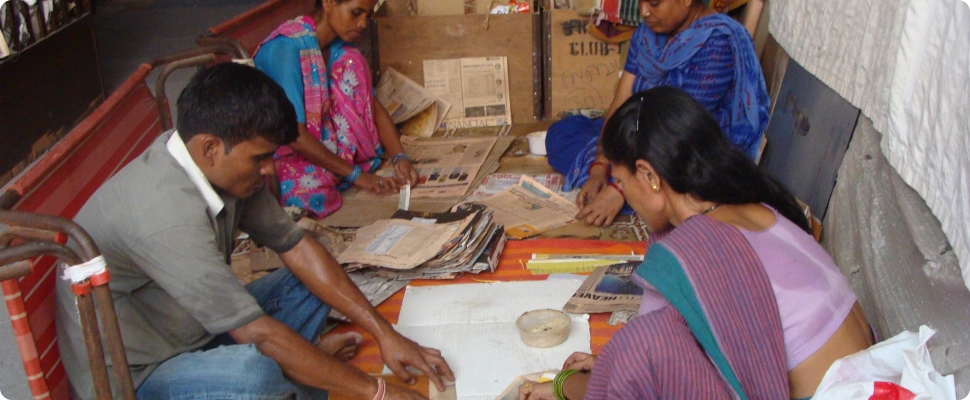
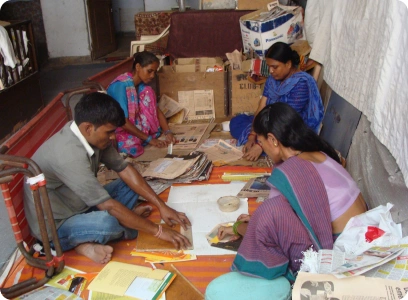
Ramon Magsaysay Award
“This award is a recognition to the many taken for granted non-issues and the viable solutions, which lies amongst us. In an era of machines this is a recognition of the needles. We see cloth as a needle in the holistic human development process and a piece of cloth in the form of a sanitary pad as a needle in the bigger struggle for the dignity of millions of women. We don’t want to change the world, we are ordinary people, we want to improve it first.”
2015
Recognized as one of Asia’s most impactful changemakers for transforming disaster response and rural development through community-led, dignity-first action.
Gram Swabhimaan Begins
“Gram Swabhimaan is my attempt to address this deep rooted sense of poverty – not just financial but emotional, psychological and social. It’s about shifting how rural communities see themselves and their relationship with the resources they hold”
2021
Gram Swabhimaan was born to reframe rural identity—not as a space of need, but of deep wisdom and legacy. The campaign celebrates community knowledge and self-respect in India’s villages.
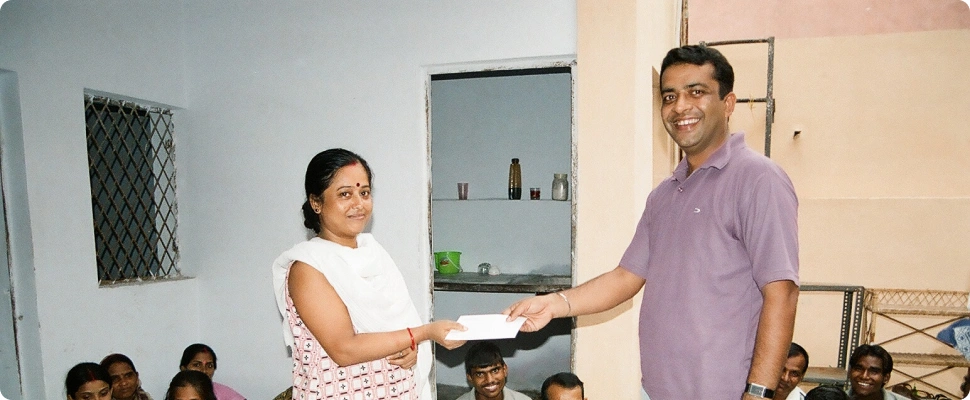
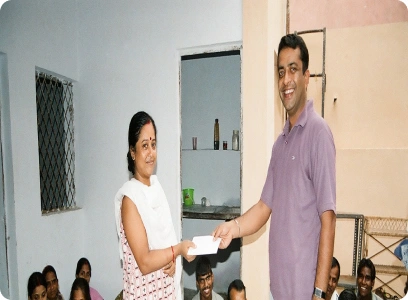
From Disaster to Dignity
“People need to understand that we don’t give dignity to anyone. Everyone is born with dignity, we just try to deny or take away others dignity.”
Today
Now reimagining disaster storytelling itself, through a visual exhibition that challenges myths, centers community resilience, and invites action beyond empathy.
From Disaster to Dignity: Witnessing Resilience Through Anshu's Lenses
Disasters don’t just destroy structures; they challenge dignity. Explore stories that reveal the human spirit's resilience.
Over two decades, Anshu Gupta has documented the aftermath of India’s most devastating disasters. Through his lens, we witness not just destruction, but the unwavering strength and dignity of those affected. This exhibition invites you to see beyond the headlines and into the hearts of survivors.

Awards & Recognition

Ramon Magsaysay

Schwab Fellow

Ashoka Fellow

Fast Company
Latest Videos / Talks
57:04
15:04
29:38
17:49
13:43

“It all started as small social media posts with some old clicks of my travels, some questions and sometime a lot of anger too.” — Anshu Gupta
Poetry
Anshu’s poetic expressions that delve into the human spirit, resilience, and societal observations.
Reflections on Society
Thought-provoking musings on the disparities observed during his travels, juxtaposing urban development with rural struggles.
COVID & Climate
Insights into the challenges posed by the pandemic and environmental crises, emphasizing community responses and resilience.
